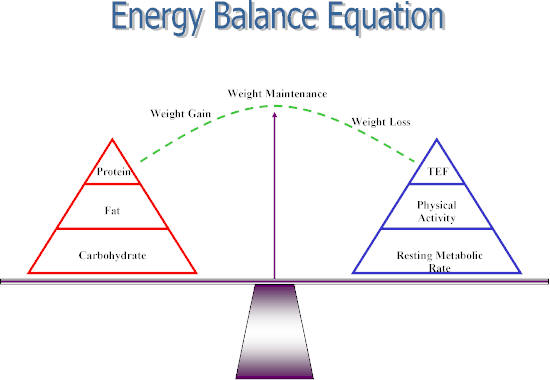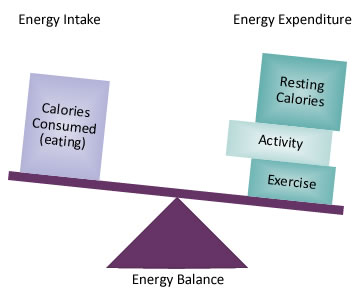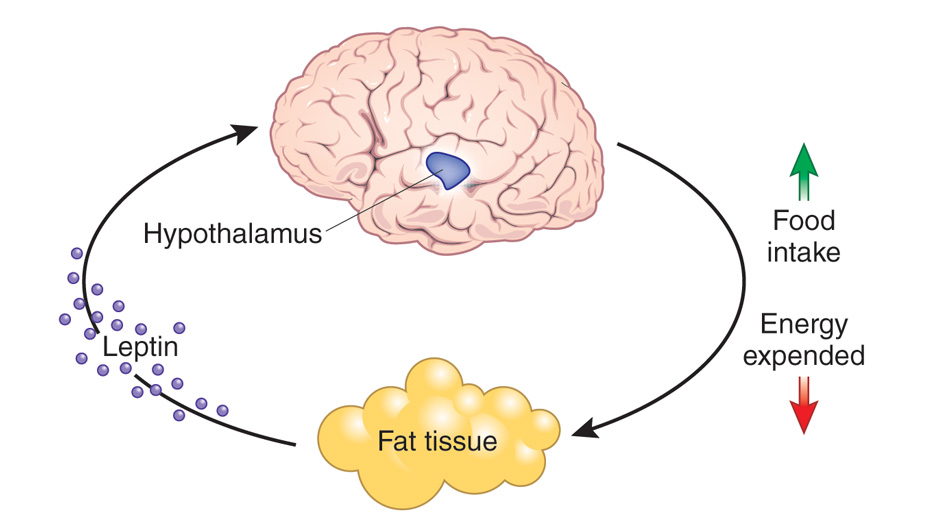
We should all be aware the need to restore the energy balance or else it can thwart the normal functioning of everyday life.
Energy balance is nothing more than the relationship, which exists between the energy, which we consume as compared to the one that goes out. This relationship involving energy is based upon the laws of thermodynamics. As per this law, it is believed that energy is neither created nor destroyed; it is merely transferred from one form to another.
There are a lot of wrong theory and misnomers that circulate on the internet regarding the concept of energy balance and this is why we are all set to rectify the details as we will familiarize you with the main aspects of this theory.
What Is The Energy Balance Equation?
When it comes to the energy balance equation, it mainly represents what happens to our body by taking a look at the difference between energy intake and the amount of energy, which we spend.
Representing it in the form of an equation in very simple terms, the energy balance equation would represent something like the following.
Energy in = energy out + change in body stores
If you observe closely, you will find that this equation is nothing but a reflection of the basic laws of thermodynamics. This equation infers that the changes which occur in our body are actually a manifestation of the difference in input and output of energy.
The excess energy which is either converted or stored gets inside the body tissue. As the tissues store mass, the change in mass which occurs in the body is merely a reflection of energy. When the amount of energy you are consuming is more than what you drain out, the stored energy will get inside your body and it may be coupled with a little loss of tissue. A lot of people are confused about the details of the dynamics and this is the reason I am going to supply you the details of each one of the three parameters:
- Energy in
- Energy out
- Change in body stores
Let us get the details straight, as we will explore the actual results of the above points.

The Energy In Aspect
When we are dealing with the energy equation, one of the first aspects is energy in. It is actually a representation of the total calories which you are consuming every day and the list includes proteins, fats, carbs, fiber, alcohol and any simple diet plan.
However, things are not that simple and obviously there is a lot more to with it. The first thing which you need to know is that all food is different and the effectiveness with which they are digested in the body is going to vary as well. On an average, you will find that food which is rich in high-quality animal source protein; will be digested with an efficiency percentage of 90 to 95. The vegetable source proteins follow them up with an efficiency rating of 80 to 85 percent. Carbs can have an efficiency percentage which is as low as 80%.
This is why different nutrients will act in a certain way and thus the amount of calories which your body actually gets is different from what you consume. A part of the energy is going to be lost before digestion as well and this ends up being lost in feces. This part of energy is never going to be absorbed by your body. This is the reason, a lot of people have suggested that when the energy balance equation is created, it is important to ensure that an adjustment must be made to account for the digestibility efficiency factor and this should differ on the basis of the actual nutrients that are consumed.
Now you must have an idea that the calorific value is actually going to differ and it will be dependent on the type of nutrients, which you are consuming, and the source of food. This is why do not blindly trust the details listed on the food. The amount of calories that are listed on the food packet is not the exact amount your body will ingest. Clearly, it is going to be less than what is written on the label.
Further, the efficiency with which energy is extracted during the process of digestion is going to differ too. There is some evidence that suggest that one can get an idea of this efficiency from the amount of bacteria that one can find in your stomach.
So, you are already aware of the fact that “energy in” is so much more than merely noting down the exact number of calories which you are ingesting. However, this doesn’t mean that we do not agree with the energy balance equation; it merely infers that it is a lot more complex than what you might have otherwise thought it to be.
The Energy Out Aspect
If you were of the opinion that ‘energy in’ is complicated, you have absolutely no idea as to what ‘energy out’ is. It is definitely complex and there are a lot of different components that are a part of it.
In a short gist, there are 4 main aspects which will be a part of the energy out component and they are mainly
- Resting/basal metabolic rate
- The thermic effect of activity
- The thermic effect of food
- Spontaneous physical activity/ non-exercise activity thermogenesis
Each of these components plays a crucial role in determining the total energy out calculation. What makes it even more difficult to compute is that each one of these component is dynamic and they keep changing based upon the diet of a person and even the type of environment it has and so on. As the values of these parameters are constantly changing, it is often hard to determine the total energy out value and this is what makes it hard to use the energy balance equation.

Time For Appropriations
Now that you have some idea of the factors that are a part of the energy balance equation, let us look at what should ideally be the rectified formula which will take into account all the main appropriations as well.
Energy in (with correction for digestion efficiency) = (BMR/RMR + TEF + TEA +SPA/NEAT) + change in body stores
Before you jump to any conclusion, we need to understand that even this isn’t entirely adjusted, as there are still other factors that go into play as far as energy balance is concerned. There are a lot of energy losses which can occur because of the inefficiency which is present in the biochemical pathway. Even if they do not contribute a great deal as far as energy is concerned; but they do account for a little part of the same.
You’re probably asking the question I work out, and how will this affect the energy balance?
When people apply this equation to mass, the discrepancy begins to pop.
Ideally, it is believed that those who lose 500 calories every day are likely to shed a pound every week; however, have you ever really found anyone experiencing this kind of change?
This brings us to the question as to what is leading to the trouble in the equation and why is there such a discrepancy in the result?
There are precisely three main reasons for the same and these are
- Water balance
- Fat and muscles are very different
- The energy balance equation is dynamic and not static.
Water Balance
Before beginning, you need to know that water contains zero calories and thereby no energy as well. This is why regardless of the quantity of water I add to one side of the equation; it is not going to impact the balance at all.
However, water balance can skew the results as far as body mass is concerned in significant ways. People with water retention capabilities can end up masking the actual fat level pretty easily. Owing to the water balance deficit, you may not see any kind of loss in weight for quite some time and then suddenly, you will find a drastic loss in weight. The same thing can work the other way round as well and you may experience a sudden gain in weight too.
Once again, this doesn’t mean that the energy balance equation is wrong; it simply infers that water balance has a way of skewing the results.
Muscle And Fat Are Not The Same
You need to know that losing or gaining muscle is not the same thing as losing or gaining fat. The logic of losing a pound a week when you create a deficit of 3500 calories per week doesn’t work because of this difference. When we say so, we assume that 100% of the fat will be lost upon creating the deficit. However, this is not true because it is not just the fat which people lose, but also the muscles and the connective tissue as well.
Owing to the loss of muscles and fat simultaneously, the results are not going to relate with what you expect. Once again, this adds up to the complexity and anomaly of energy balance equation.

The Energy Balance Equation Isn’t Static
Now, this is the main reasons for all the divergence in answers. The energy balance equation isn’t stable and all the different factors keep on changing based upon your diet and even environmental conditions. This is the reason, the net value also fluctuates. This is the reason, it is very hard to come to a right deduction regarding the amount of fat you will gain or lose because the values will keep on altering and so you cannot really come down to a static number.
These are the main reasons that lead to some kind of discrepancy when you are using this equation. Apart from this, you also have the concept of positive and negative energy balance and we will be dealing with the same.
Negative Energy Balance
If you end up creating a severe negative energy balance, you will find that it will lead to a huge decline in your metabolism. This will subsequently lead to loss of bone mass and even reduction in the thyroid hormone levels as well. Owing to such sharp reductions on the level of different hormones, you will find a lot of negative connotations like loss of attention, decrease in the ability to perform physical activities, general body weakness and so on.
However, in most cases, it is seen that a negative energy balance never leads to weight loss. Whenever the body finds that a deficit has been created, it falls upon the fat reserves for making up for the difference.
Positive Energy Balance
Sometimes, owing to over eating, you may find your body suffering from positive energy balance. When you are eating a lot, the arteries will find plaques inside them and your blood pressure and cholesterol levels are likely to shoot high. At the same time, the odds of suffering from diabetes ends up being very high because the body can become resistant to the effect of insulin and sometimes it can also lead to cancer.
No doubt, your overall weight is going to increase as well. The body is mostly very adaptive to the energy changes and intake. However, you have to be sure that your body is healthy enough to ensure that the different metabolism is working smoothly to work out the different aspects and thereby shed the extra energy.
Conclusion
These are the two kind of impact which can severely impact the balance of our body. In order to stay healthy, you need to be sure that you are trying to maintain the energy balance equation. As long as the energy equation is balanced, you should be able to stay healthy.
-Terry Asher
Terry
Latest posts by Terry (see all)
- How Important Are Net Carbs For Building Huge Muscle? - Apr 28, 2017
- The Matt Damon Workout Explained - Apr 27, 2017
- Watercress – Benefits And The Best Way To Consume It - Apr 26, 2017











I wouldn’t have any clue about all the bad information about the energy equation online because I will admit that it’s something I have never thought about that much, despite its importance. I trust this blog to give me the best information though, so I’m glad you put up this post. I really appreciate the last part of this post where you talk about the positive and negative energy balance that you can cause in your body, and the impact that they can have on your health. I never avtually thought much about it as I said, but this is really very important information to have and things to be aware of. Gives a bit of a new meaning to ‘balanced’. Great and informative post!